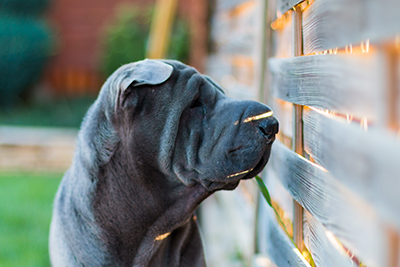Warning homing a Shar Pei
Before adopting a Shar Pei, ask yourself if you know the history of the dog. When rehoming their Shar Pei, many people may provide false information or keep the truth from you to try and get you to take the dog and often at a price. It is always better to adopt a Shar Pei from people or professional organisations like the SPRGB who know the breed and can help you find the right fit for you and your family.

Here is why
We bought a beautiful Shar Pei advertised as ‘ fantastic with children’ but now believe he was falsely advertised! There’s been little signs since so I emailed the old owner for advise and she said it’s just him being him give it time. He actually went for my 10 yr old daughter and I can’t believe we’ve been so foolish in thinking someone would be honest and not only that we’ve been silly putting our children at risk!!
Taking Shar Pei from non credible providers
- An organization listed as a rescue is selling puppies in large numbers or always seems to have them available.
- A breeder refuses to divulge the name of his or her veterinarian. (If you are given this information, we’re not suggesting you call and interrogate the vet. At least look up the vet’s name and location to ensure it’s legitimate and the vet is still in practice.)
- Advertisements are constantly in the newspaper classifieds, on fliers passed out in public places or listed on the internet, including Facebook, to buy puppies from the same person or organization.
- A person holds a sign on the side of the road or camps out near a busy roadway trying to sell puppies.
- The same person always has puppies available or advertises them at every occasion as gifts.
- A breeder offers multiple different breeds for sale or “rare” or “new” breeds. Breeding should not be an experiment.
- The seller wants to meet you in a public place to complete the sale.
- The person does not ask you any questions other than money and pickup arrangements. Any legitimate breeder should care who his or her puppies end up with and ensure they are going to suitable homes.
- The person sells puppies at everyday events, such as garage sales or flea markets.
- You are not allowed to meet the breeding parents or view the home or business facility.
- A person claims he or she is selling the puppies as an “agent” for a breeder.
- Puppies are offered in opposite-sex pairs to encourage breeding.
- The breeder claims spaying or neutering is not required or unnecessary.
- The puppies are offered for sale and delivery before they reach 8 weeks old.
